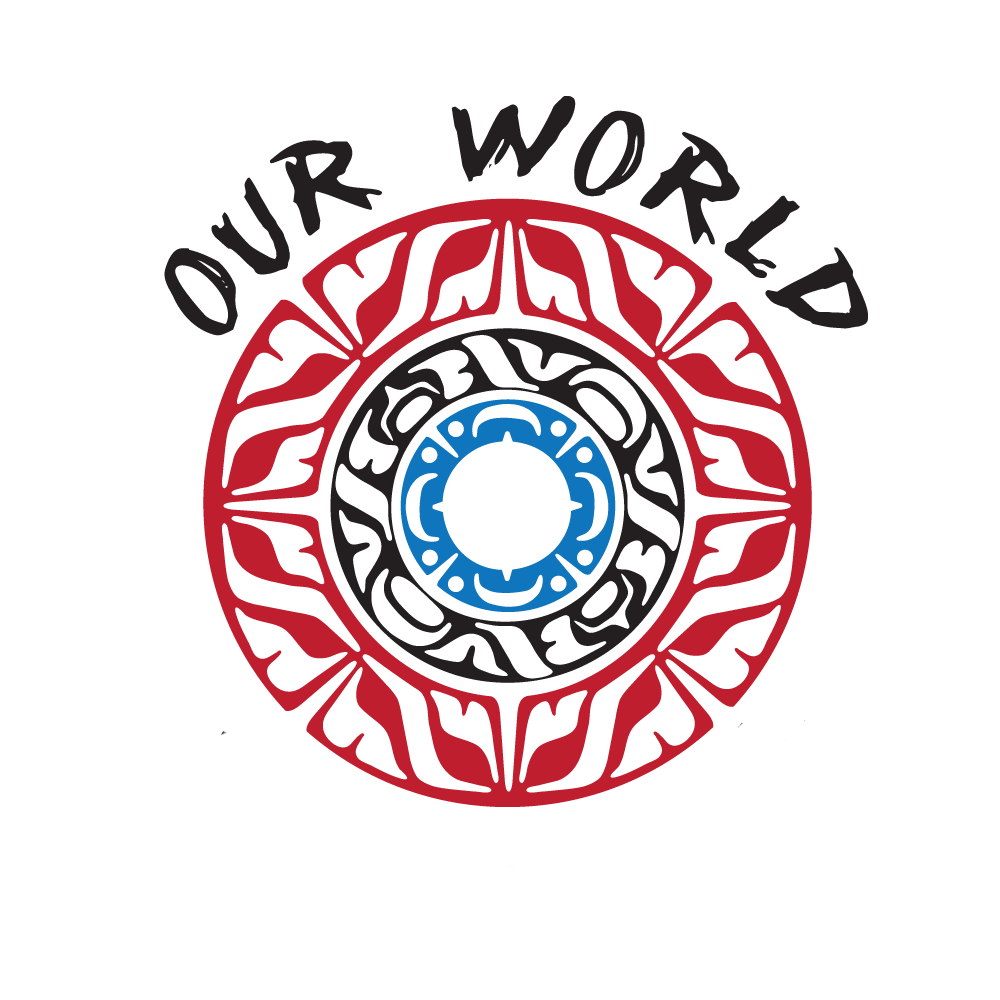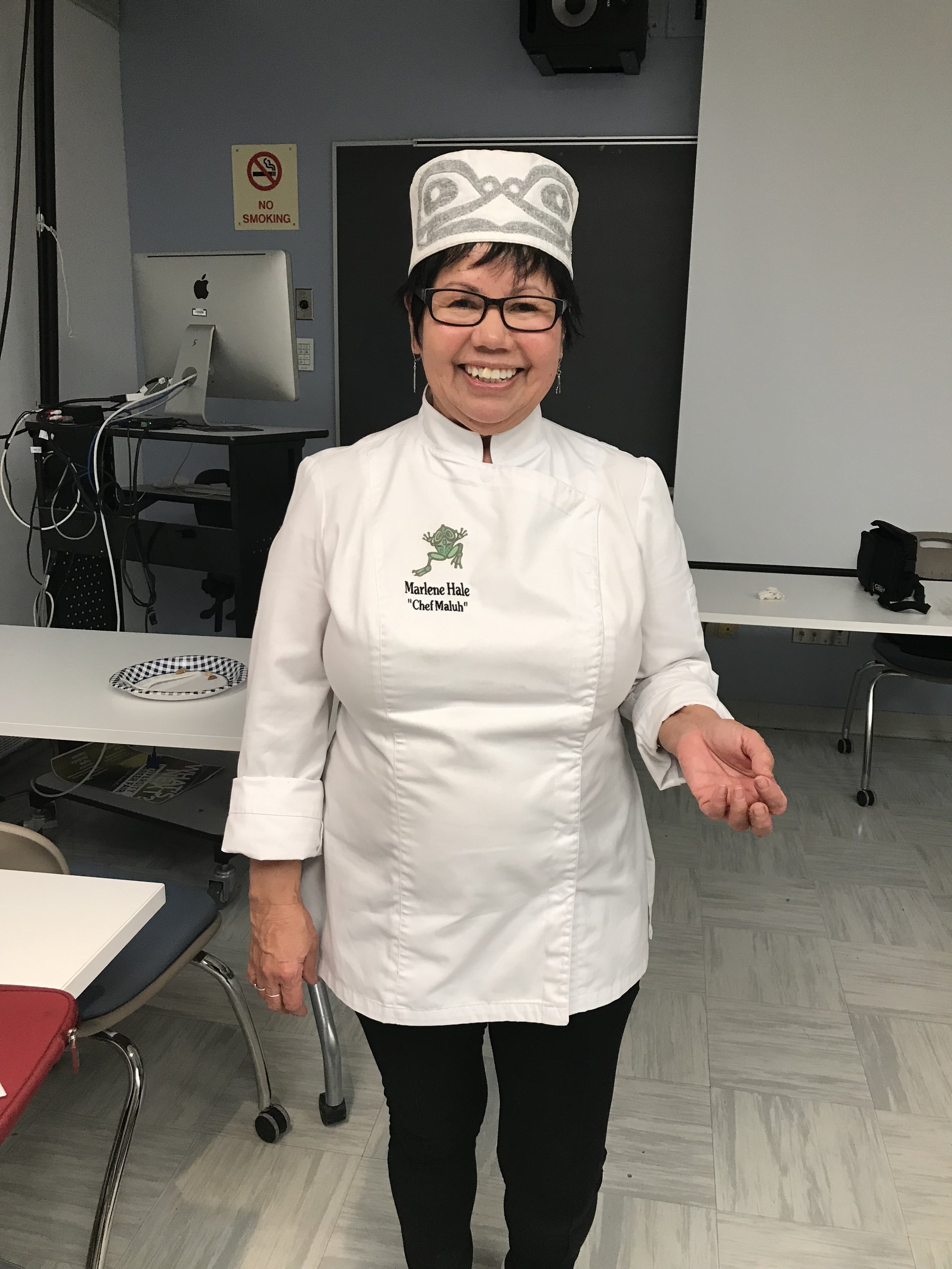Marlene Hale
Community: Smithers, BC (living in Quebec)
Nation: Wet'suwet'en
Bio: Marlene Hale, whose childhood nickname in Wet'suwet'en, the northern Athabaskan language of her people, is Maluh, was born in Smithers, British Columbia, a pretty little town at the foot of the Hudson Bay Mountains.
One of 15 children (seven girls, and eight boys), Maluh learned to cook at a young age. Bannock bread was made daily in a huge baking pan that her mother, Lucy Rose Verigin still treasures. The family ate lots of salmon and wild game, cultivated a garden, and supplemented their diet by gathering wild foods and berries.
It was an active life-- not always easy, but good, and healthy too. Lucy Rose, who at the age of 87 still drives her car and leads a full life, busy life, is a living testimony to that fact. The salmon runs in the spring and summer are a time of hard work and feasting. Wet'suwet'en men harvest salmon from the Buckley River using gaffs, long poles with hooks on the ends, while the women and girls work together to preserve most of the catch by canning and smoking it. There are feasts to prepare with huge pots of salmon soup simmering and the aroma of baking bannock wafting through the air.
Growing up, Maluh loved all this activity. As her interest in cooking became a passion, she decided to become a chef. After graduating from the culinary program at Vancouver Community College and working in several professional kitchens, she landed a job at the prestigious Vancouver Club. There, Maluh's dedication and talent impressed Executive Chef Tamas Ronyai, who encouraged her to take part in a chef exchange program and travel to Hungary and England.
In Budapest, Chef Ronyai's hometown, she lived for two months, working in restaurants and hotel kitchens. In London, she spent a month in the kitchen of renowned Chef Anton Edelmann at the Savoy Hotel. Returning to Vancouver, Maluh opened Chef Maluh's Catering, specializing in West Coast First Nation cuisine. Besides catering elegant events, she teaches cooking classes and gives back to the Native community by speaking to First Nation organizations on subjects such as childhood obesity, and diabetes, conditions directly affected by diet.
As a teacher, one of her most rewarding experiences has been working with a group of First Nations people who are HIV/AIDS positive. In her course "Mind, Body & Spirit”, the students learn basic culinary skills with an emphasis on shopping for healthy food on a limited budget and preparing nutritious meals to help strengthen their immune system. As part of the program, they work alongside tribal elders planting, tending and harvesting organically grown greens and vegetables in an Aboriginal Community Garden. “Working in the garden has been a healing experience for my students”, says Maluh, “A chance to leave the problems of the city behind. They seem to gain physical and spiritual strength by spending time with the elders and getting back in touch with nature and with their cultural heritage.”
In the spring, Chef Maluh and her students have a kickoff picnic at the garden and invite elders. The menu features grilled wild salmon fillets served on homemade bannock buns, and spring greens tossed with a healthy-- and tasty-- hemp seed oil vinaigrette.
In 2012, she moved to Saint-Anne-DE-Bellevue, Quebec, teaching Culture & Cuisine, catering and doing workshops. She has been learning to speak French and putting her recipes in different cultural languages. She has been working with various, universities, institutions, schools, public parks, Indigenous Art Galleries & First Nation Organizations eg. Native Montreal.
Film(s): My Life with Bannock

